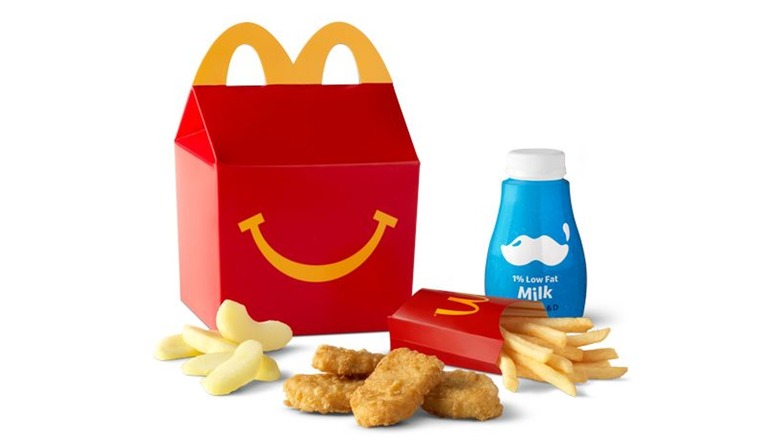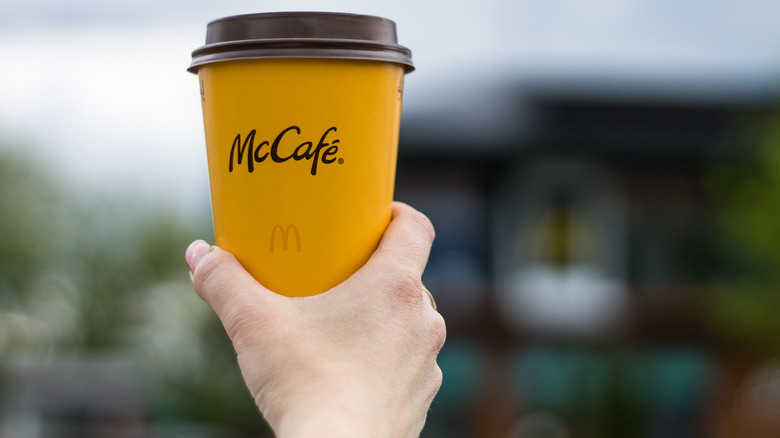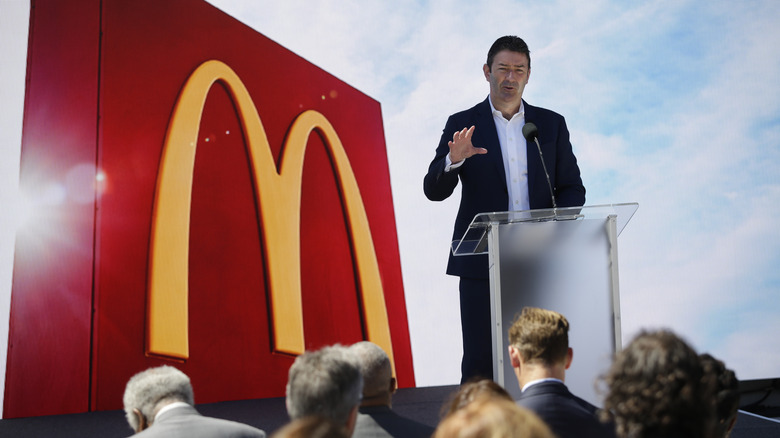McDonald's Hasn't Learned Anything After Burned Kid Lawsuit
Most times when we write about news in the fast food world, it tends to be pretty light-hearted – a new burger here, a discontinued shake flavor there, and the very latest of limited-time offers. Every so often, however, we come across something that borders on tragedy, such as the sad tale of a 4-year-old child who was badly burned by a hot chicken McNugget.
In August of 2019, a Florida woman purchased a couple of Happy Meals at a McDonald's drive-thru outside Ft. Lauderdale, then passed the food to the kids in the back seat. Pretty soon afterward, her 4-year-old started screaming, so she pulled over and saw to her horror that the child had been badly burned. The case went to trial, and the jury recently reached a verdict, but even though McDonald's was found liable, we're not going to hold our breath that it will be making any real changes to its food safety practices. For one thing, the company itself shares the liability with that particular franchise. While the award amount has yet to be decided, it will probably be a much bigger financial burden on the franchise holder than on the corporation. For another, McDonald's has a history of not adapting after similar lawsuits.
McDonald's has been sued over hot foods before
While the details from the trial sounded horrific — the jury not only viewed photos of the little girl's badly-burned thigh but also heard audio of her screaming in pain — McDonald's dismissed the case as an "unfortunate incident" and continues to proclaim its innocence. Perhaps the company was so blasé about the affair because it's no stranger to the courtroom. Back in the '90s, there was the notorious coffee incident where a woman was awarded $2.7 million (later reduced to $640,000) for burns she suffered when a super-hot beverage spilled in her lap. While the lawsuit was fodder for late-night comedians and was even poked fun at in an episode of "Seinfeld," information has since come to light that it was anything but frivolous.
McDonald's, it seems, had a prior history of similar coffee burn lawsuits as it's long insisted on serving super-hot coffee no matter who gets hurt. While the $640,000 payout may have been meant to teach the company a lesson, it didn't work out that way as McDonald's did nothing more than put up signs in its drive-thrus reading "Coffee, tea, and hot chocolate are VERY HOT!" and imprint the coffee cup lids with the words "HOT! HOT! HOT!" Ironically, the corporate mandate that coffee be served super-hot to ensure the best flavor may be misguided, as some coffee connoisseurs feel that the beverage is best at temperatures as low as 120 degrees Fahrenheit, not the 190 degrees Fahrenheit that scolded the plaintiff in the '90s coffee trial.
Here's why the burger behemoth may not be so concerned by such incidents
Once we start pondering the question of why McDonald's doesn't seem to learn from these repeated incidents of customer injury, all we're doing is speculating. It's not like the corporation is going to issue a statement saying "We don't care because we're evil! Mwa ha ha ha!!" That being said, our educated guess is that McDonald's corporate may not be too bothered by lawsuits because it can — and does -– pass the buck downwards onto the franchise owners. Approximately 95% of all McDonald's restaurants are franchise-owned, and by some accounts, the company considers itself to be more of a franchise seller than a burger behemoth.
In the case of the child burned by a McNugget, both the franchise owner and McDonald's USA were named as plaintiffs in the lawsuit. The jurors, however, found the latter to be guilty of nothing more than failing to give proper food handling instructions, while charges of negligence and/or creating a defective product were dismissed. The franchise, on the other hand, was on the hook both for negligence and for not warning the customer about the dangers of hot McNuggets. It's an easy out for McDonald's to tell franchise owners to follow food safety practices while, at the same time, imposing quality standards that make them nearly impossible to follow, as in the case of the coffee temperatures. At Mickey D's, it's not only buyer beware, but franchisee, as well.


